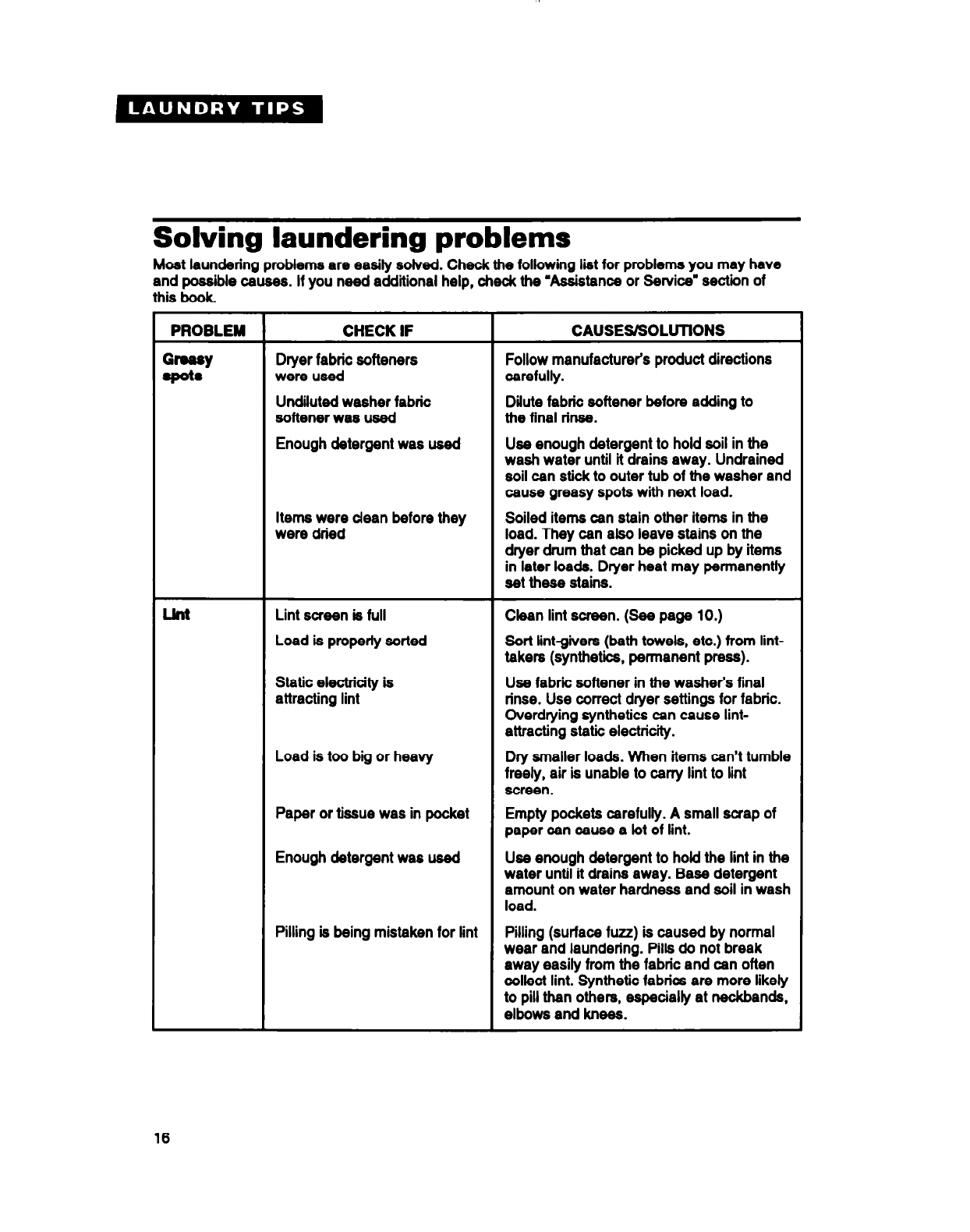
Solving laundering problems
Most laundering problems are easily solved. Check the following list for problems you may have
and possible causes. If you need additional help, check the “Assistance or Service” section of
this book
PROBLEM CHECK IF
CAUSES/SOLUTIONS
G-Y
Dryer fabric softeners
Follow manufacturer’s product directions
w-
were used carefully.
Undiluted washer fabric Dilute fabric softener before adding to
softener was used
the final rinse.
Enough detergent was used Use enough detergent to hold soil in the
wash water until it drains away. Undrained
soil can stick to outer tub of the washer and
cause greasy spots with next load.
Items were dean before they Soiled items can stain other items in the
were dried load. They can also leave stains on the
dryer drum that can be picked up by items
in later loads. Dryer heat may permanently
set these stains.
Lint screen is full
Load is properly sorted
Static electricity is
attracting lint
Load is too big or heavy
Clean lint screen. (Bee page 10.)
Sort lintgivers (bath towels, etc.) from lint-
takers (synthetics, permanent press).
Use fabrii softener in the washer’s final
rinse. Use correct dryer settings for fabric.
Cverdrying synthetics can cause lint-
attracting static electricity.
Dry smaller loads. When items can’t tumble
freely, air is unable to carry lint to lint
screen.
Paper or tissue was in pocket Empty pockets carefully. A small scrap of
paper can cause a lot of lint.
Enough detergent was used Use enough detergent to hold the lint in the
water until it drains away. Bass detergent
amount on water hardness and soil in wash
load.
Pilling is being mistaken for lint Pilling (surface fuzz) is caused by normal
wear and laundering. Pills do not break
away easily from the fabric and csn often
collect lint. Synthetic fabrics are more likely
to pill than others, especially at neckbands,
elbows and knees.
10
